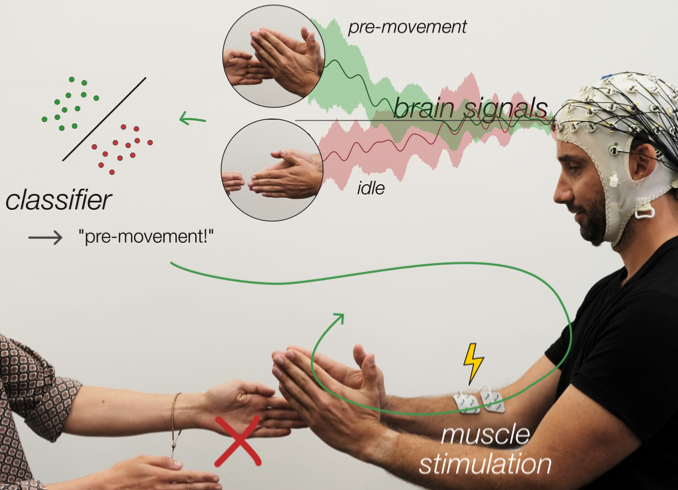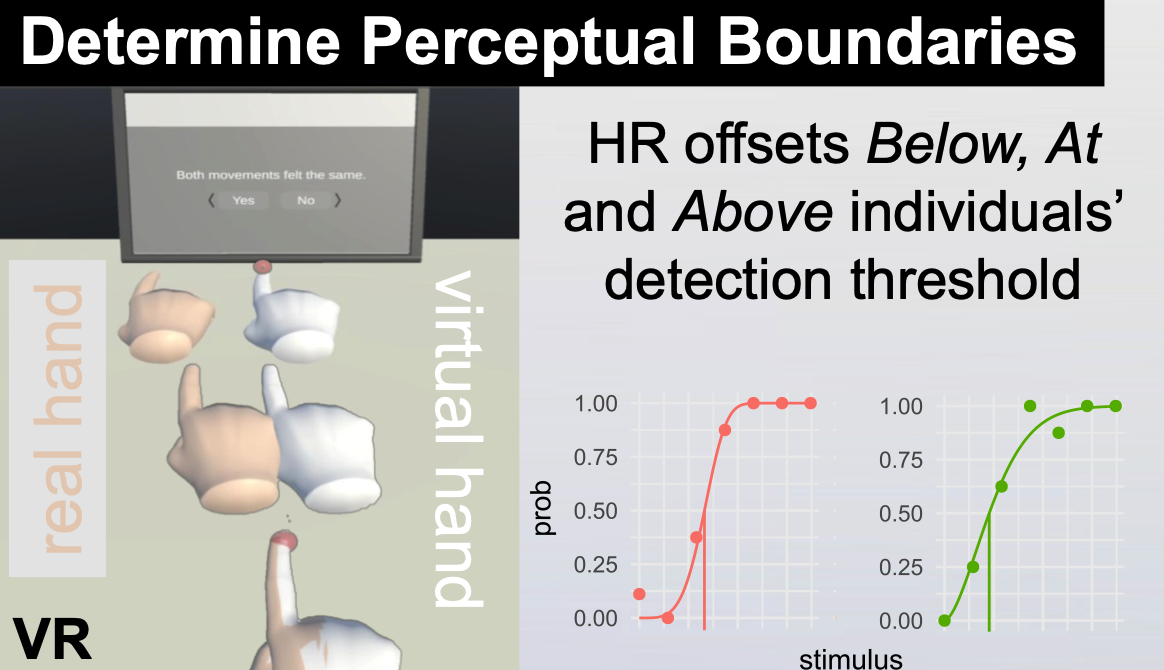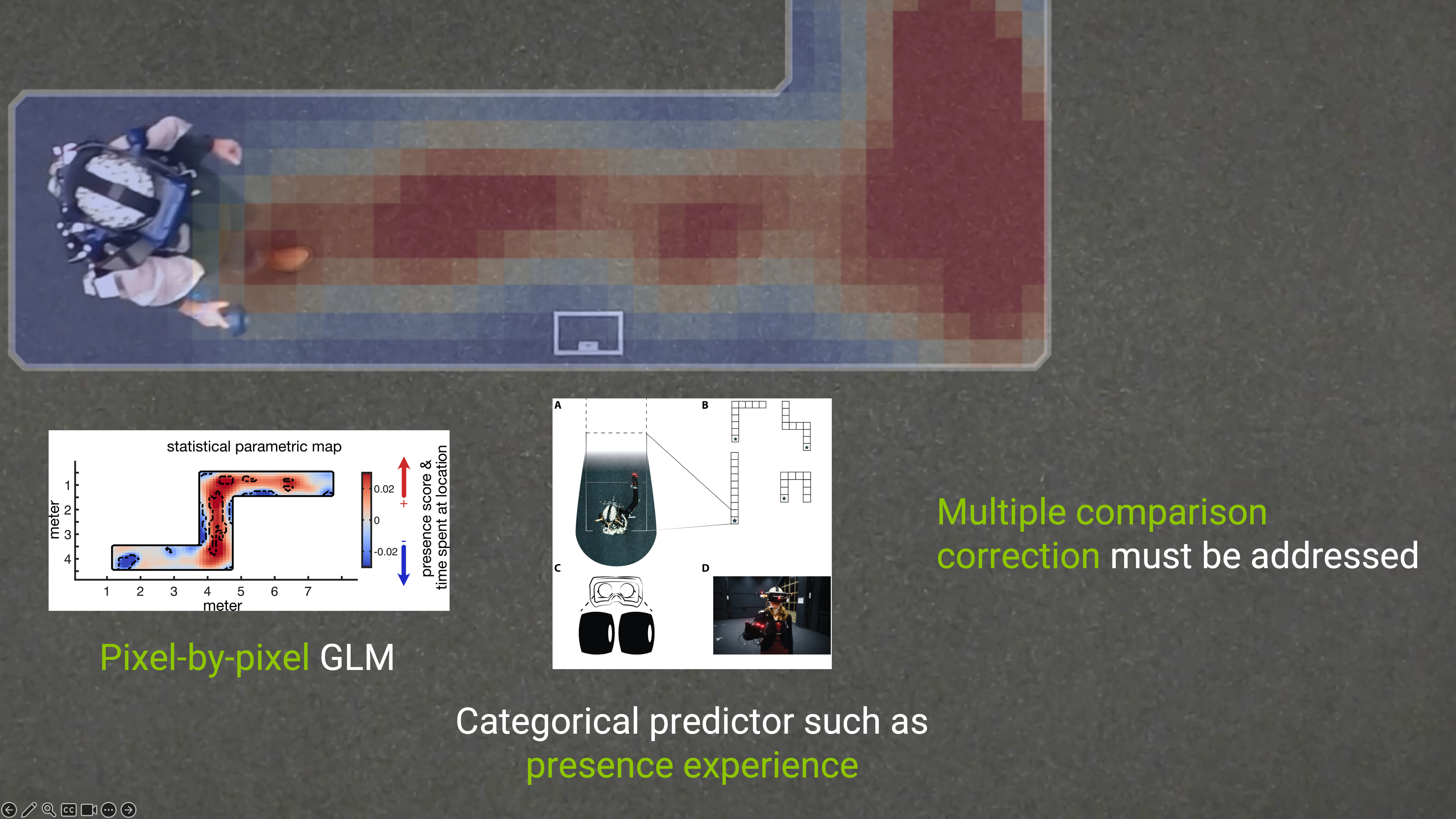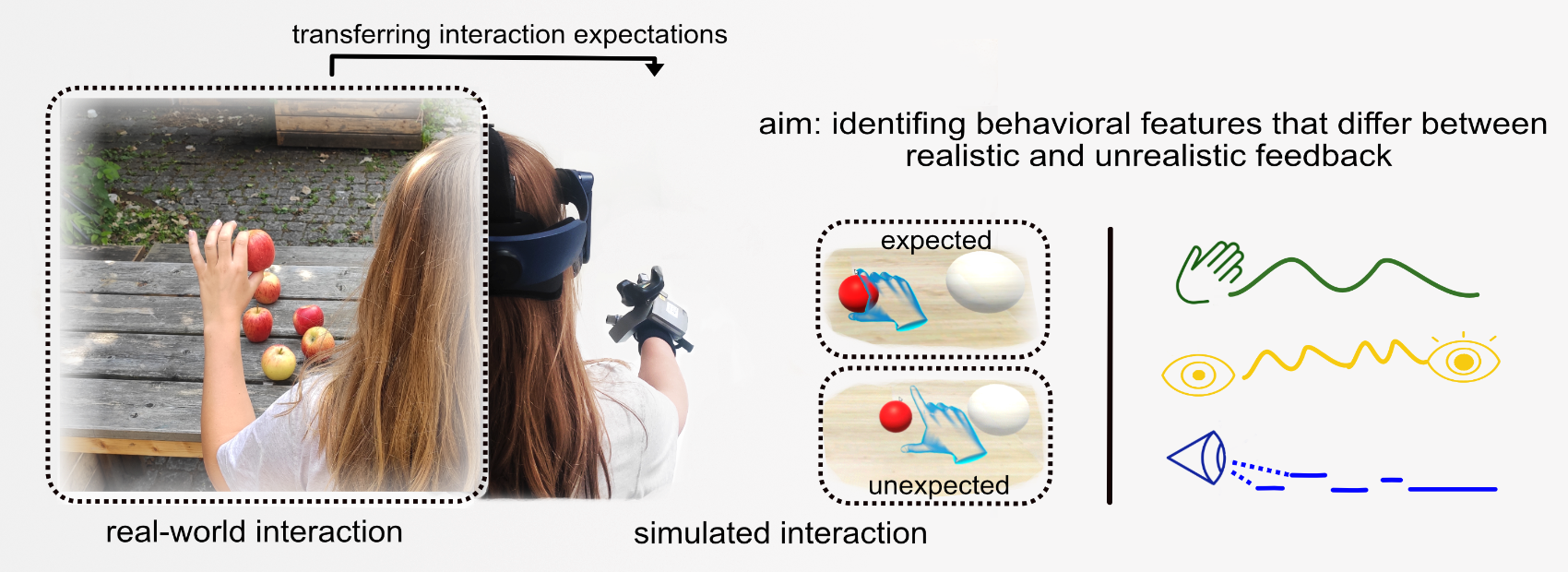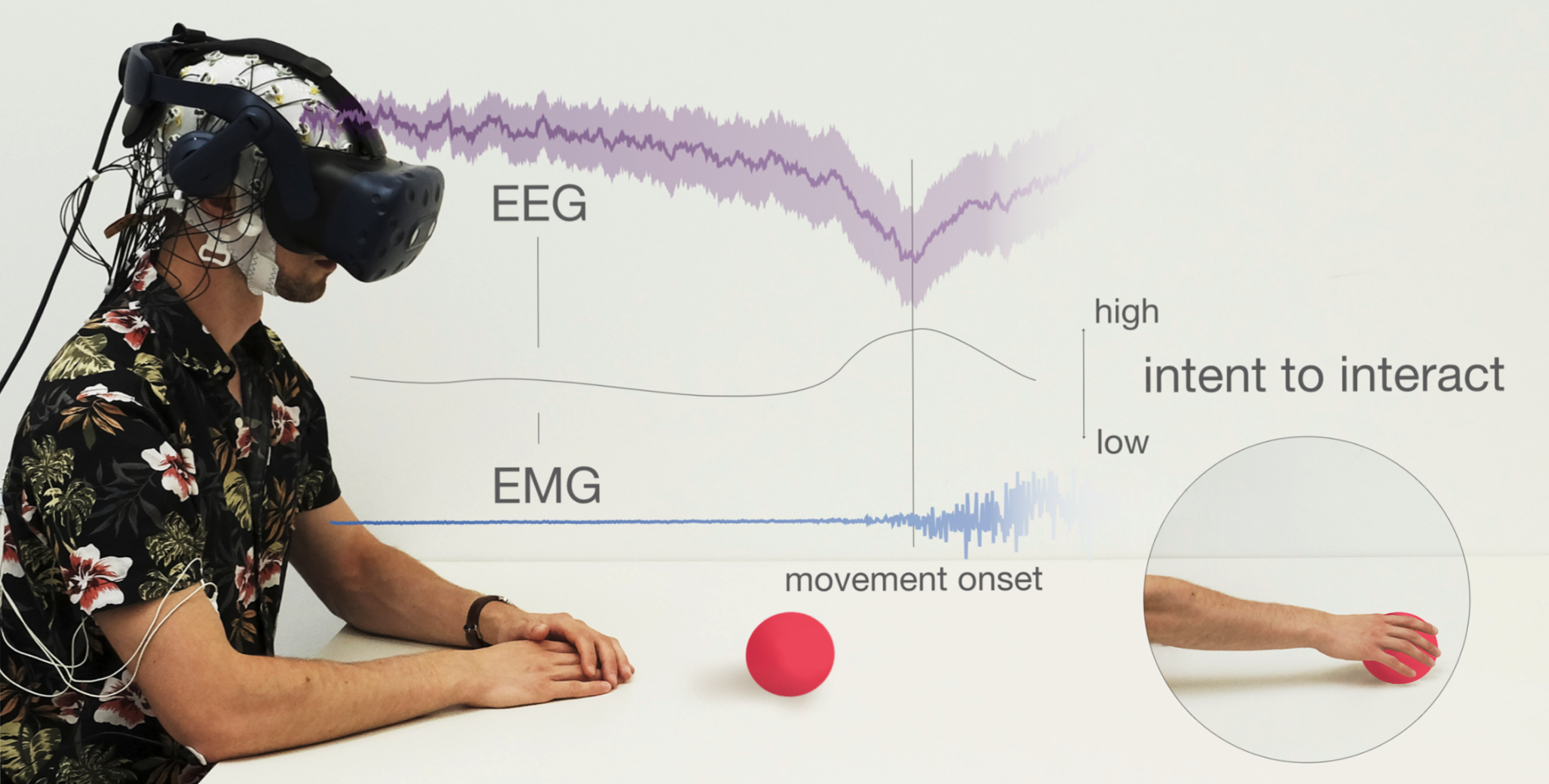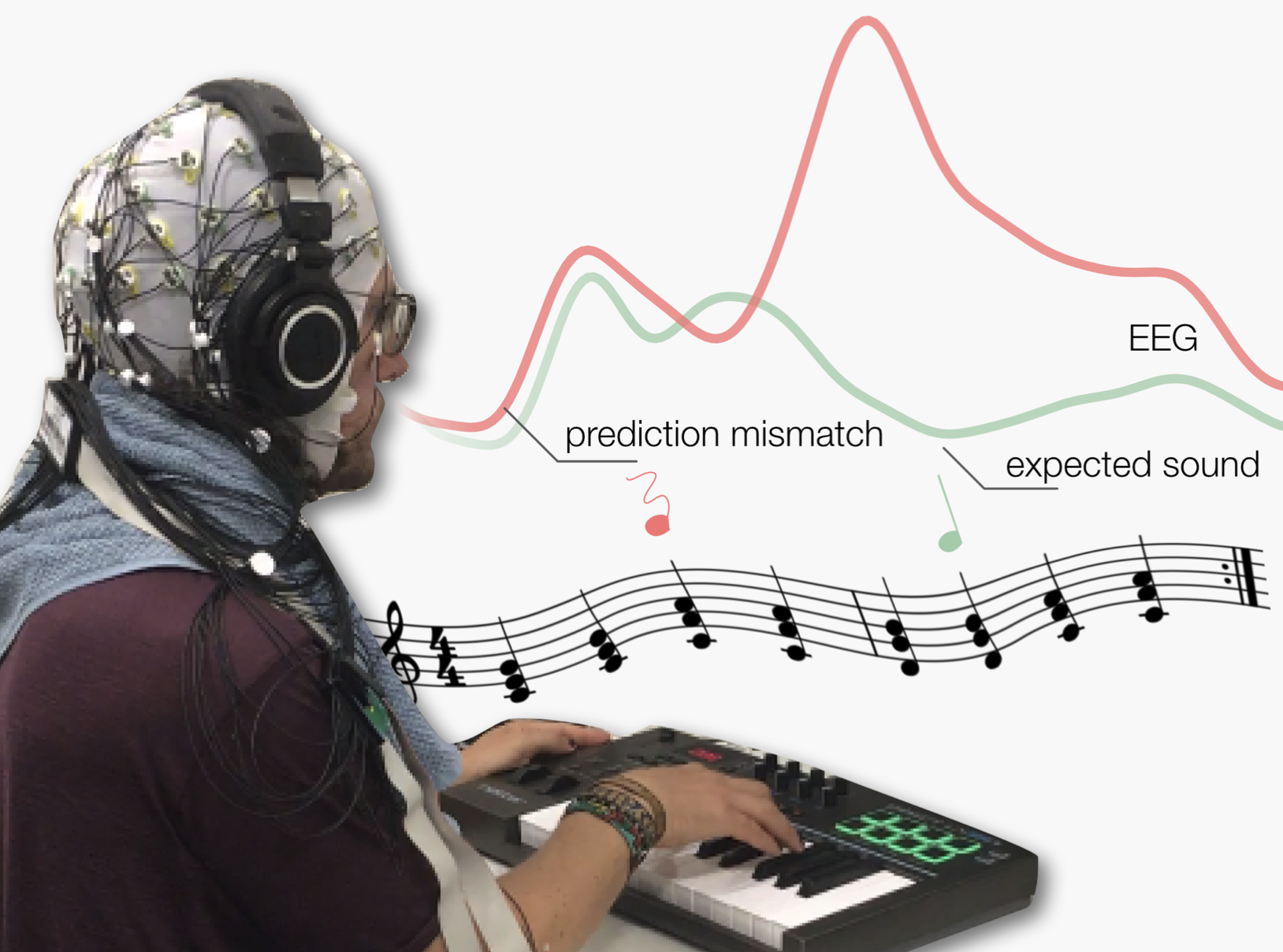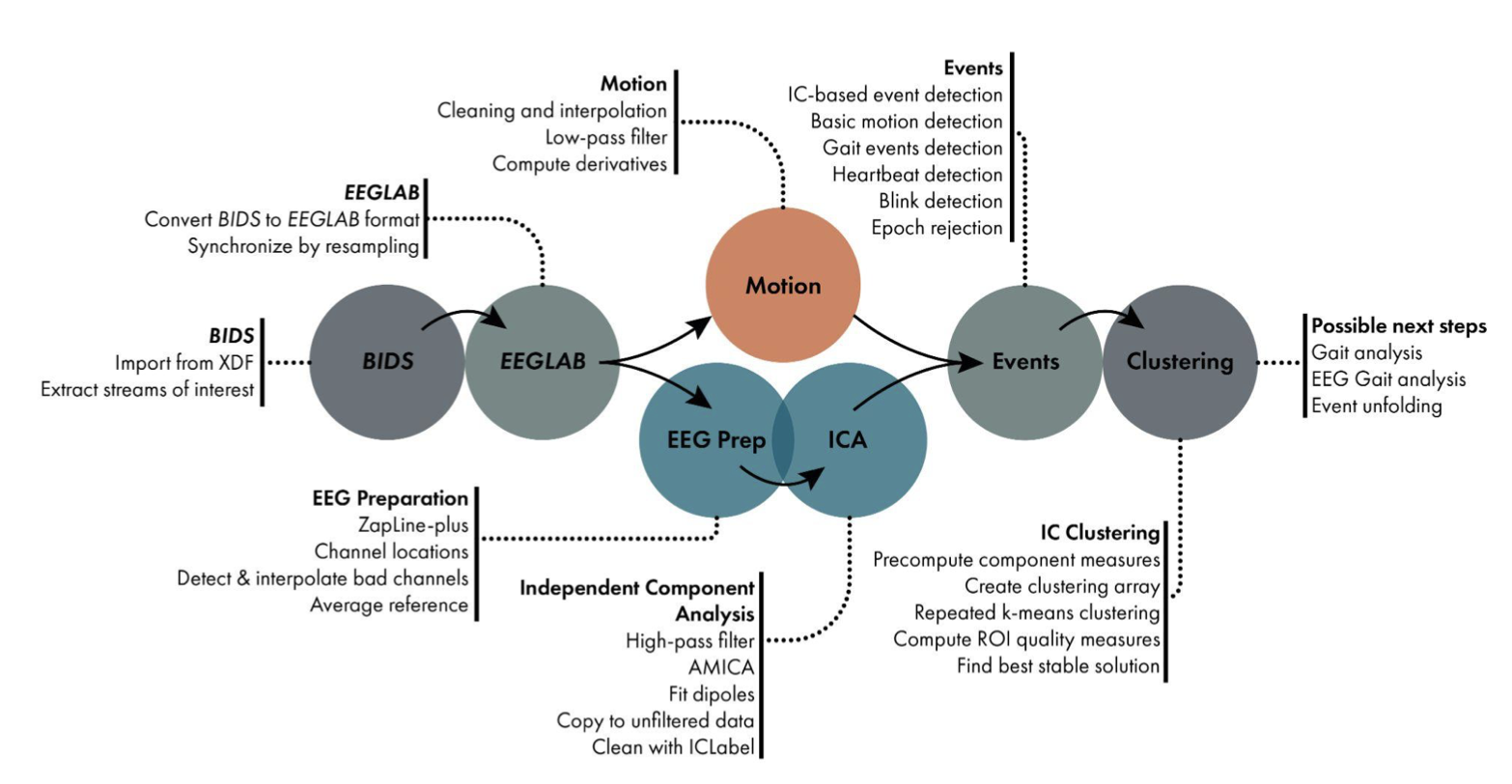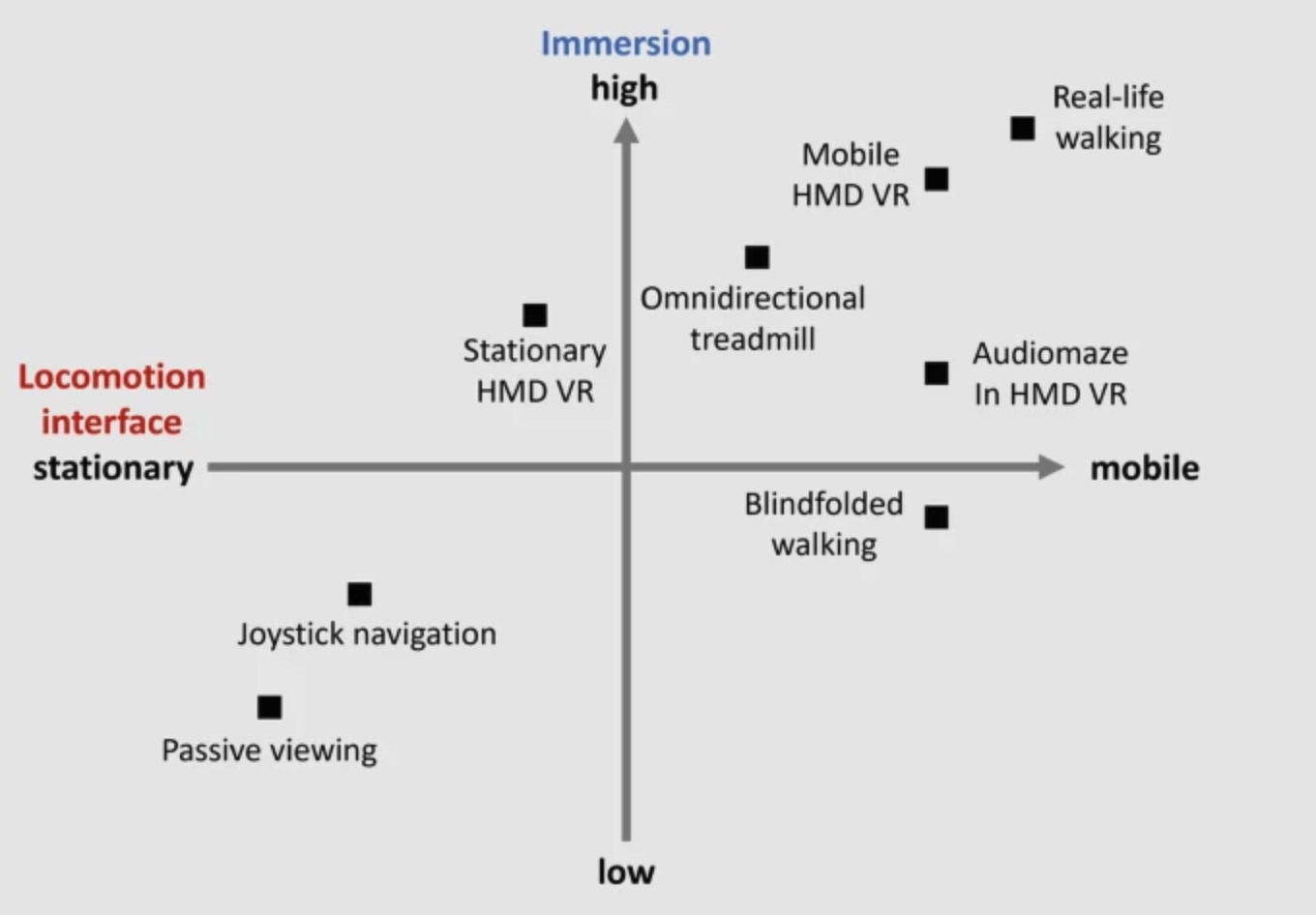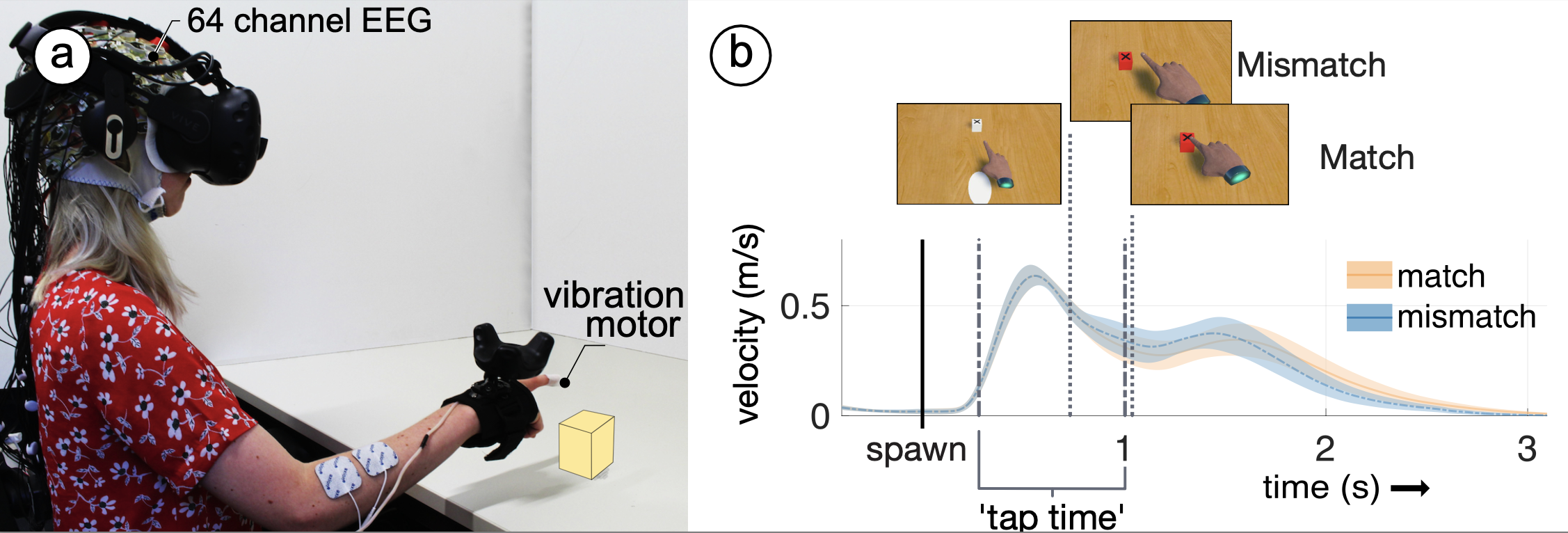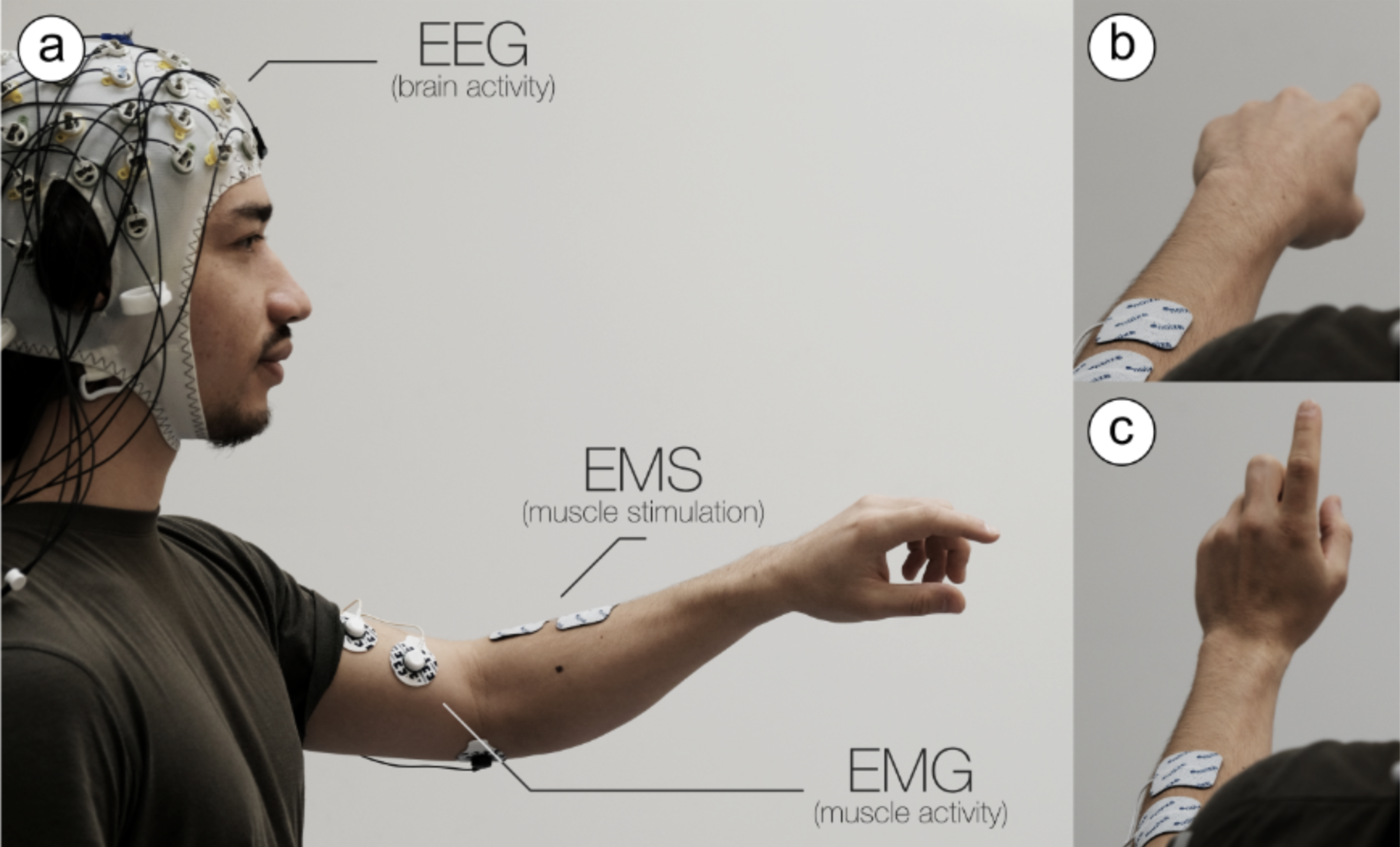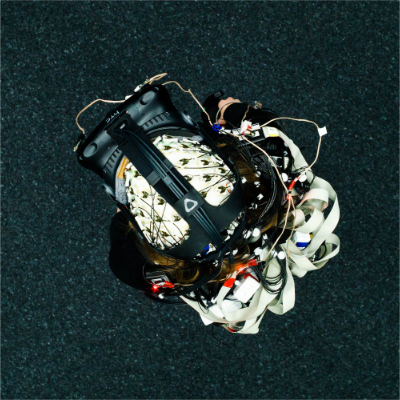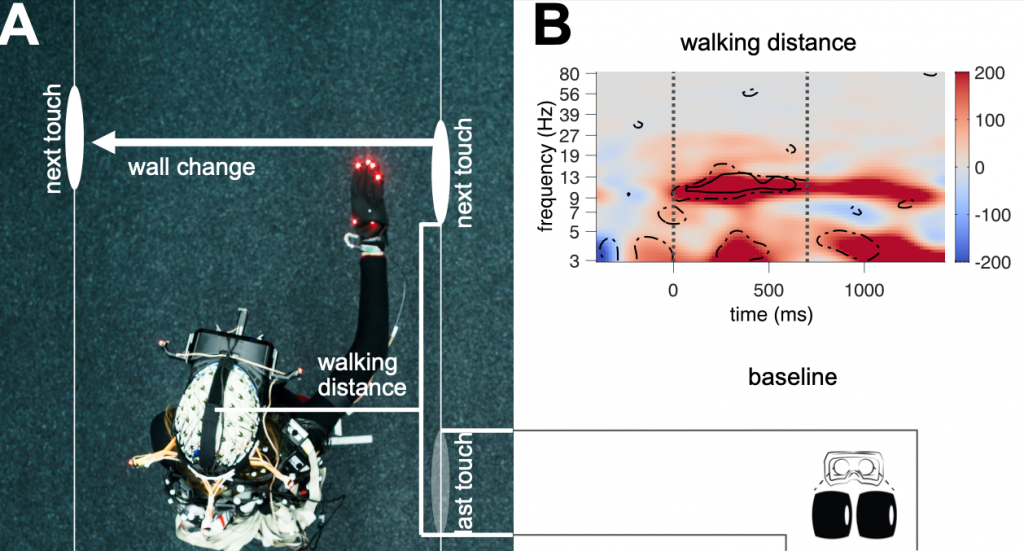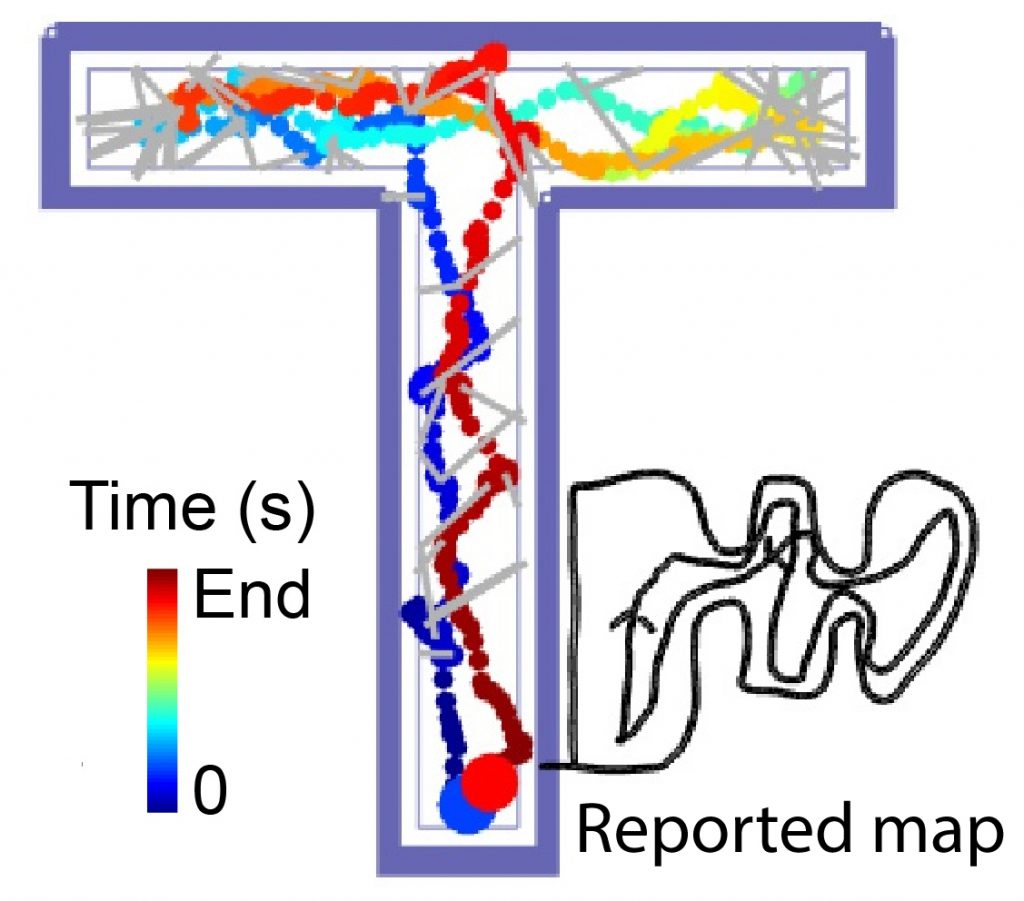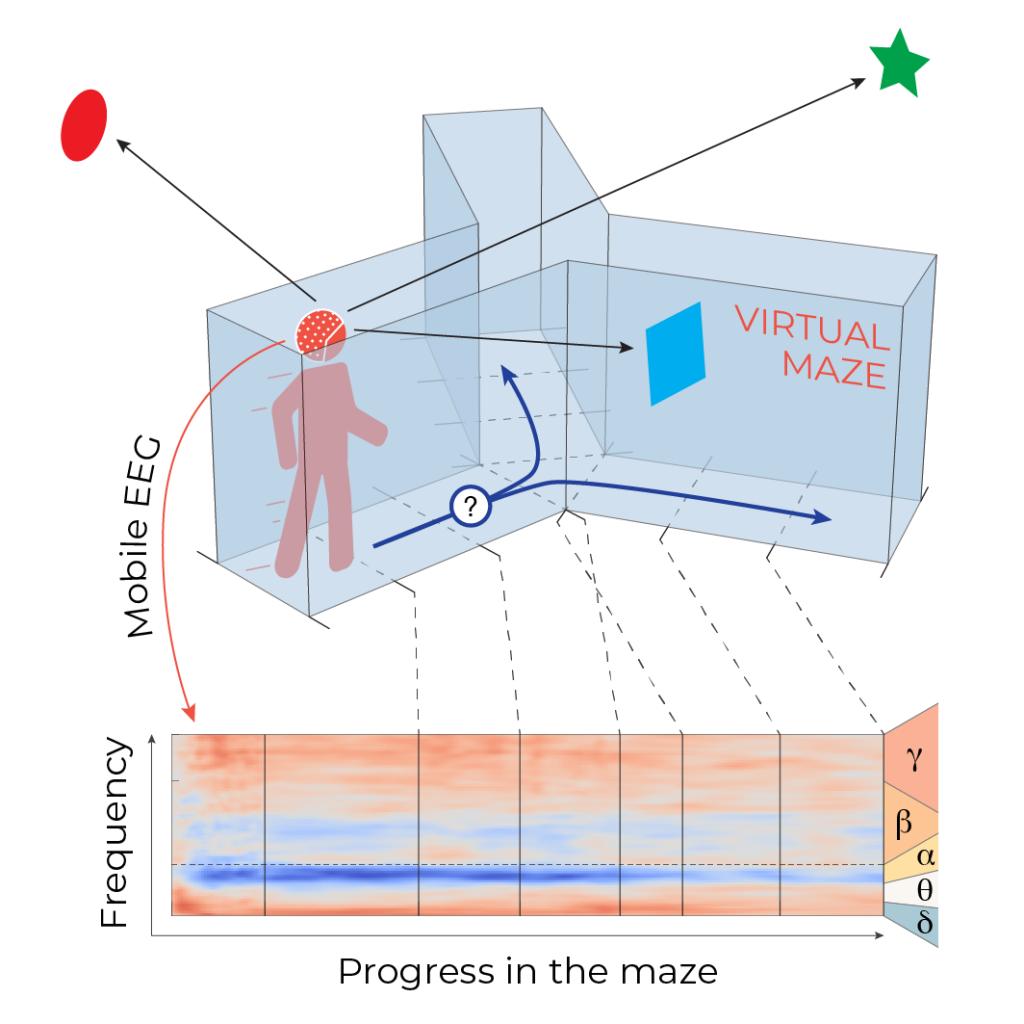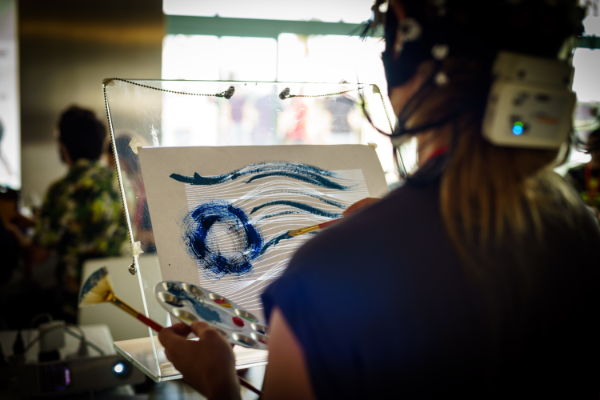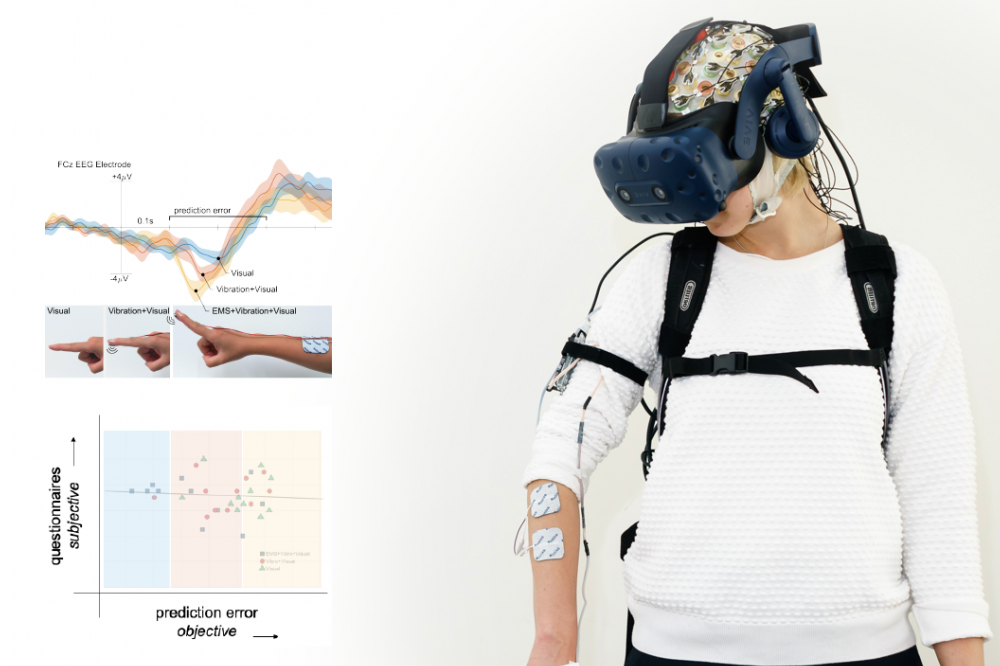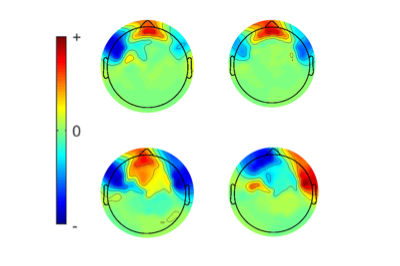The invisible maze task (IMT): interactive exploration of sparse virtual environments to investigate action-driven formation of spatial representations
Lukas
Gehrke, John R
Iversen, Scott
Makeig, and
1 more author
In Spatial Cognition XI: 11th International Conference, Spatial Cognition 2018, Tübingen, Germany, September 5-8, 2018, Proceedings 11 , Apr 2018
The neuroscientific study of human navigation has been constrained by the prerequisite of traditional brain imaging studies that require participants to remain stationary. Such imaging approaches neglect a central component that characterizes navigation - the multisensory experience of self-movement. Navigation by active movement through space combines multisensory perception with internally generated self-motion cues. We investigated the spatial microgenesis during free ambulatory exploration of interactive sparse virtual environments using motion capture synchronized to high resolution electroencephalographic (EEG) data as well AS psychometric and self-report measures. In such environments, map-like allocentric representations must be constructed out of transient, egocentric first-person perspective 3-D spatial information. Considering individual differences of spatial learning ability, we studied if changes in exploration behavior coincide with spatial learning of an environment. To this end, we analyzed the quality of sketch maps (a description of spatial learning) that were produced after repeated learning trials for differently complex maze environments. We observed significant changes in active exploration behavior from the first to the last exploration of a maze: a decrease in time spent in the maze predicted an increase in subsequent sketch map quality. Furthermore, individual differences in spatial abilities as well as differences in the level of experienced immersion had an impact on the quality of spatial learning. Our results demonstrate converging evidence of observable behavioral changes associated with spatial learning in a framework that allows the study of cortical dynamics of navigation.
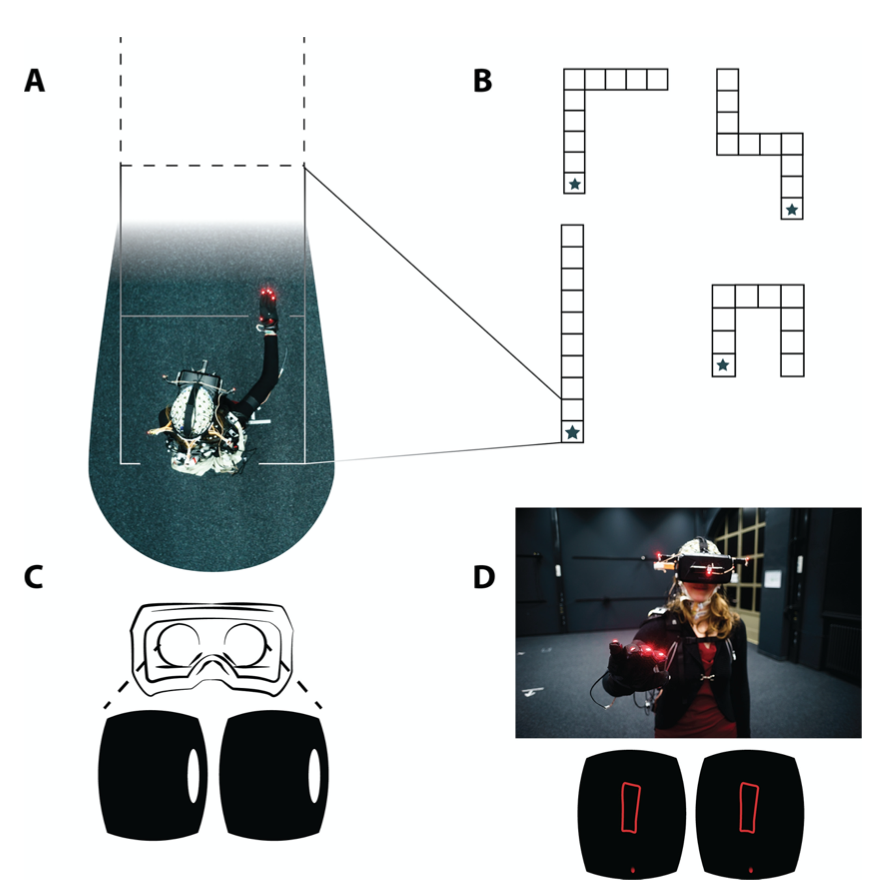 The invisible maze task (IMT): interactive exploration of sparse virtual environments to investigate action-driven formation of spatial representationsIn Spatial Cognition XI: 11th International Conference, Spatial Cognition 2018, Tübingen, Germany, September 5-8, 2018, Proceedings 11 , Apr 2018
The invisible maze task (IMT): interactive exploration of sparse virtual environments to investigate action-driven formation of spatial representationsIn Spatial Cognition XI: 11th International Conference, Spatial Cognition 2018, Tübingen, Germany, September 5-8, 2018, Proceedings 11 , Apr 2018